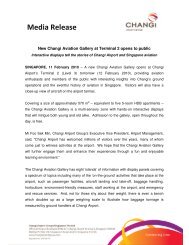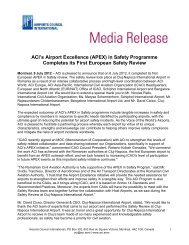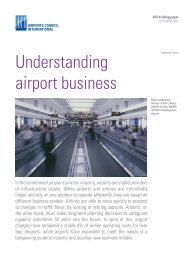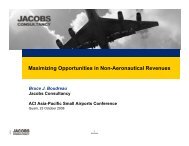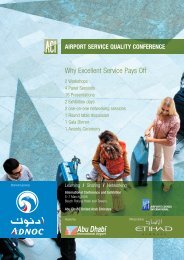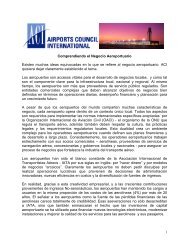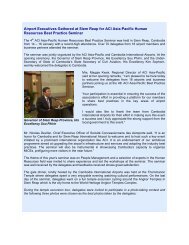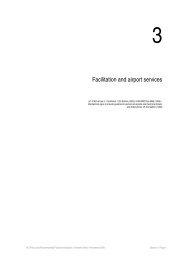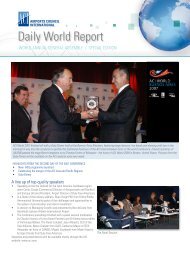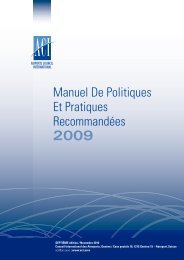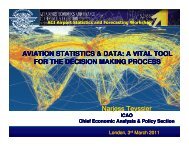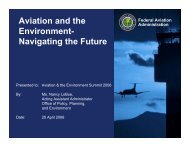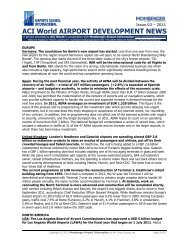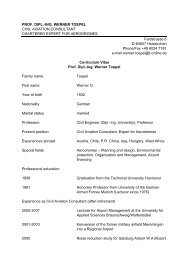ASSEMBLY â 36TH SESSION - ICAO
ASSEMBLY â 36TH SESSION - ICAO
ASSEMBLY â 36TH SESSION - ICAO
You also want an ePaper? Increase the reach of your titles
YUMPU automatically turns print PDFs into web optimized ePapers that Google loves.
A36-WP/159<br />
EC/25<br />
- 4 -<br />
5. FINANCIAL IMPLICATIONS<br />
5.1 There are widely varying estimates of the financial impact of the air cargo industry. Most<br />
analysts quote a figure of 30% to 40% as the amount of world trade that moves by air in value terms.<br />
Using the range this puts the value of all shipments carried by air at between US$ 2.5 and 3.5 trillion, by<br />
any measure an impressive number. As more and more nations join the World Trade Organization, tariffs<br />
will decline and more goods will move by air. Almost all forecasters see at least 6 percent annual global<br />
growth for air cargo tonnage over the next 20 years.<br />
5.2 It would not be inaccurate to portray global air cargo as an economic powerhouse. The<br />
large integrators have investment grade credit ratings in an airline industry otherwise beset with highly<br />
volatile share prices and historically low returns for shareholders.<br />
5.3 Another way to look at the cargo logistics chain is in terms of opportunity costs. With the<br />
logistics chain putting a premium on so-called “time-definite” services, restrictive bilateral and<br />
multilateral air services agreements impose a high cost on carriers, the shipper and the eventual customer.<br />
Outmoded bilateral agreements, which always have treated air cargo market access as a subset of<br />
passenger traffic, slow the logistics supply chain or cause the chain to operate over circuitous routings,<br />
adding precious time to the shipping process.<br />
5.4 Only a few countries (India the most prominent) have embraced the logic that all-cargo<br />
services should be treated separately from passenger traffic and have moved to create liberalized regimes<br />
for cargo, including in some cases unilateral rights for seventh freedom traffic.<br />
5.5 Those countries which have made the move to electronic pre-clearance and paperless<br />
processing of shipments are at a competitive advantage in a business where time is money.<br />
6. CONCLUSION<br />
6.1 The air cargo industry is already enabling the rapid integration of the world economy,<br />
bringing efficiencies to complex production processes by moving intermediate goods to regions which<br />
add the highest value at the lowest cost. Air cargo also carries high value finished goods quickly from<br />
manufacturer to consumer, cutting inventory costs and driving high levels of customer satisfaction. The<br />
future of the industry depends to a large extent on governments recognizing that market forces should<br />
continue to drive innovation. Excessive regulation has a high cost, creating inefficiencies in the global<br />
supply chain and thereby reducing the positive economic impact of air cargo on the economy.<br />
— END —



